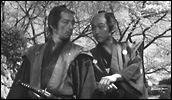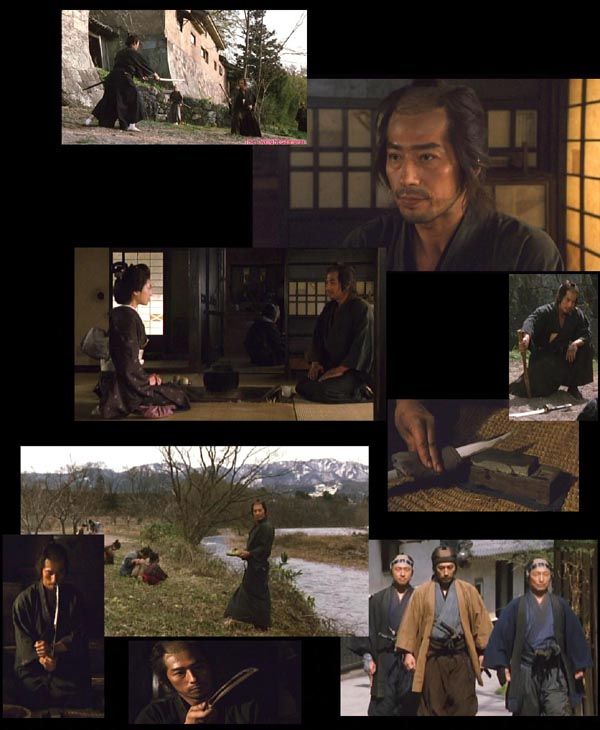|
Tasogare Seibei
Titusz 2005.05.07. 11:29
 I´ve watched yesterday evening again the story of Seibei Iguchi, I´ve watched yesterday evening again the story of Seibei Iguchi,
the movie called The Twilight Samurai. (also known as Twilight the Samurai, or Tasogare Seibei).
A realistic look at feudal Japan before it's demise.
A love story, story about Bushido - the true Samurai Kodex.
To recommend everyone, who is interested in the history of Japan.
The last years in the time, where the new era was on the way to turn off the Samurai spirit.
A strory about a last Samurai..

After dedicating a large portion of his life to the wildly popular Tora-san movies, Yoji Yamada seemingly comes out of the blue and creates a fantastic modern samurai flick. Twilight Samurai can best be described as being a kind of Unforgiven (Clint Eastwood's 1991 Academy Award winning western) of Japanese samurai movies. While firmly in the jidai-geki (period drama) genre and playing more towards realism than any sort of stylized samurai mythos, the film tells the story of Iguchi "Tasogare" Seibei ("Twilight" Seibei) a lowly 50-koku samurai who toils under great financial hardship to raise his two daughters and care for his senile mother, after his wife passes away from consumption.
Seibei is an incredibly sincere man with great personal pride and honor - an anachronism in the final years of the Tokugawa era - whom no one can figure out: he is always unkempt, is obviously under great stress, but never complains about his lot in life nor wishes anyone foul. When the beautiful Tomoe, an old childhood friend (and crush), returns to his life, he is conflicted by his feelings towards her and his understanding that because of his 50-koku status, he is unable to marry a woman of Tomoe's standing. But when Tomoe's ex-husband, a violent drunk, shows up and demands that Tomoe return with him, Seibei is drawn into a duel to protect her honor. What is discovered through this duel is that Seibei might appear to be a simple, unkempt man, but he is also a master short-swordsman. Quickly rumors of Seibei's might spreads across the land and he reluctantly is forced to accept a mercenary's assignment from the elder's in his Shogun's house, in order to save both his and his family's 'face'.
With incredible patience Yamada unfolds the tale of "Twilight" Seibei. The film is deliberate, concise and beautiful in its execution. The film harkens back to the heyday of jidai-geki but does so in a different and unique manner. The violence, while still dished out in sharp bursts, has a very real quality typically ignored in chanbara or jidai-geki productions: a perfect illustration of which has Seibei, towards the end of the movie, step over the body of a slain samurai assassin who is now frozen in rigor mortis and engulfed by flies. Somehow, by infusing the film with such 'realism' the story gets anchored and becomes more authentic. By the time we've reached the conclusion and the coda of the movie, we realize that what we've seen is not only the story of Seibei and his anachronistic code of conduct, but also how, (and this is the major similarity to Unforgiven) because of this, he (and his ilk) could no longer function in the rising modern world which regarded the West, material goods and modernization as things to be prized above honor. These themes resonate loudly in Twilight Samurai and helps to elevate Yamada's movie from a mere 'period picture' into something more profound.
Nicholas Rucka
Source: Midnight Eye

|

